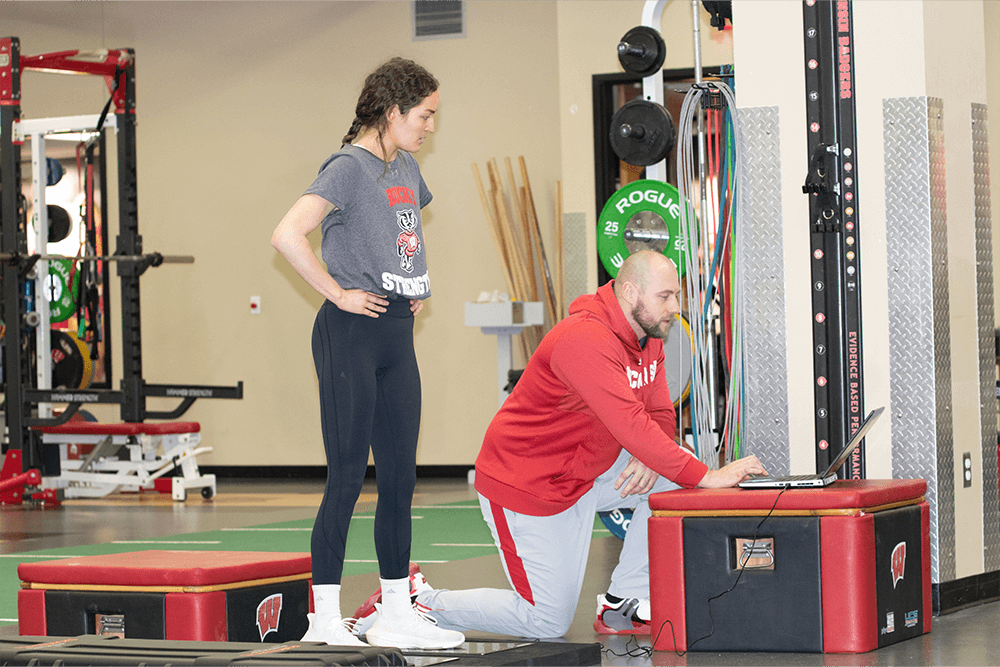
For this case study, we chatted with Kevin Schultz, Director of Olympic Strength and Conditioning at the University of Wisconsin. There, Kevin leads a staff of six full-time strength and conditioning coaches and one graduate assistant which, together, manage the physical preparation needs for 22 NCAA Division I sports and 700+ student-athletes.
In addition to his leadership role within the department, Kevin is also the Strength and Conditioning Coach for the women’s volleyball team at the university, where he has been using Kinduct for the last three seasons.
The Goal: Streamlined Data Sources
When considering the purchase of an Athlete Management System like Kinduct, Kevin said there were three main driving trends behind the decision:
- The speed of technological advancements within the field
- The need to disseminate critical information to many individuals in a timely fashion
- The need for sporting organizations to operate in a more holistic and high performing manner (e.g., knocking down the silos)
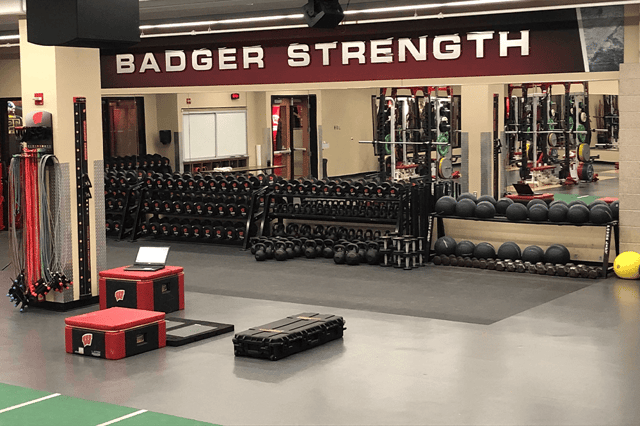
(photo: Jes Burda)
With the volleyball team he uses a few different technologies to collect performance-related data but wanted “one concise system to improve user interface and reduce the cost of time in the creation of reports and visualization.”
Adding: “For us it was about simplifying structures and centralizing data in hopes of being able to answer more in-depth questions and enhance the efficiency and speed of that process.”
The Way Through: Navigating the Demands of a Student Athletes’ Schedule
In Wisconsin, members of the women’s volleyball team receive a daily wellness survey. Kevin uses their answers to better understand what each athlete is experiencing. Specifically, to better understand the “other 20 hours a day” when the student-athletes are not under the watchful care of the training staff.
Having this data readily available provides insight for the staff to both better empathize with athletes during adversity or hardship, as well as knowing when to appropriately motivate and push them.
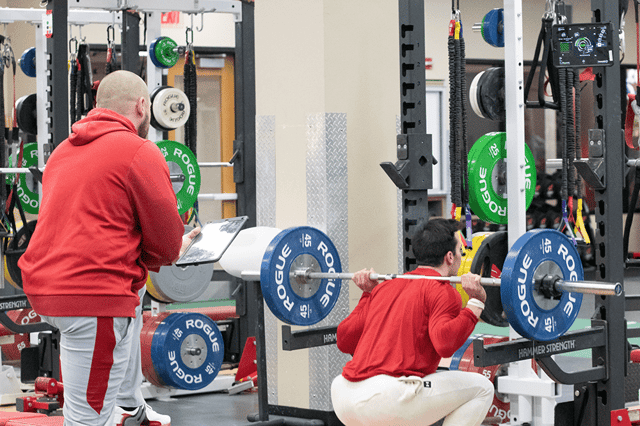
(photo: Jes Burda)
In addition to the wellness survey, Kevin also has athletes submit subjective training load surveys (session RPE) to monitor how much work the student athletes are completing on any given day.
Regarding the sessions RPE surveys, he says: “What is potentially even more important, from a sporting context, is how the psychological impact of a training session can increase a session’s RPE result as compared to more objective measurements of load such as GPS. For example, a really ‘easy’ physical practice but a really ‘hard” mental or emotional practice.”
With this type of data available, Kevin and his team can adjust and optimize daily, weekly, and monthly training objectives accordingly, both from a physical preparation and sport development perspective.
The Report: Where that Data Goes
Within Wisconsin’s Kinduct platform is a customized, high-performance player dashboard, which has been built in coordination with their specific needs. Inside the dashboard is where the data from the submitted forms and other integrated sources is represented.
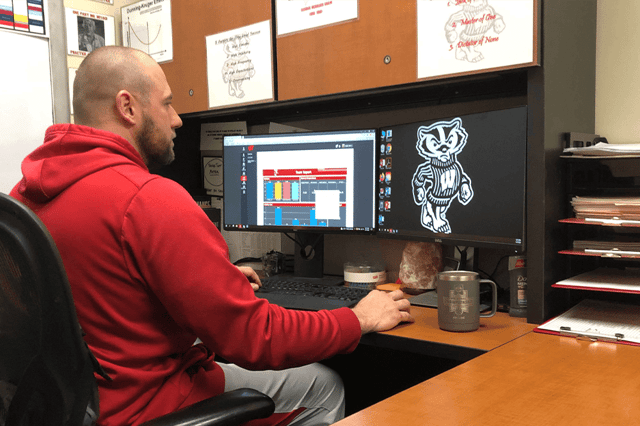
(photo: Jes Burda)
Having the key, meaningful metrics visualized in a concise manner, the team in Wisconsin can quickly answer those “almost daily practitioner questions, which are helpful in understanding current trends with individual athletes and within the team,” says Kevin.
These reports can be shared easily, supporting the need for timely communication and collaboration.
Kevin says that reports are sent to the sport coaches, technical coordinator, director of operations, and sports medicine professionals, which help to inform practice development, rehabilitative strategies, and educational interventions with the student-athletes.
“The cross-departmental collaboration is at the crux of the system and what has allowed our program to become a championship level program over the past three seasons.”
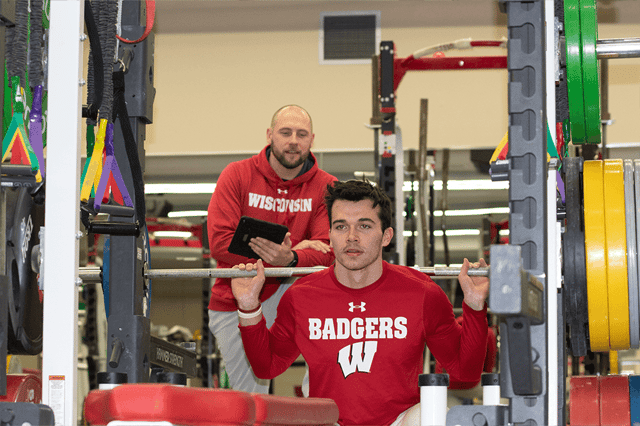
(photo: Jes Burda)
The Result: Supporting a Championship Season
Today there is no denying that the women’s program at University of Wisconsin has become a powerhouse.
During the past three seasons, Wisconsin Women’s Volleyball has won three consecutive Big Ten Championships, reached the NCAA Final Four three years in a row, made the NCAA Championship two out of the last three seasons, and capped this past season off by hoisting the Championship trophy for the first time in program history.
“Not a causation but a correlation of our success,” Kevin says about having Kinduct along for the ride.
“These systems have allowed us to better understand the global demands we are placing upon our student-athletes. Having a strong pulse on the team and being able to catch the outliers has been helpful at reducing time lost to injury and enhancing performance on-court and within the strength and conditioning space.”